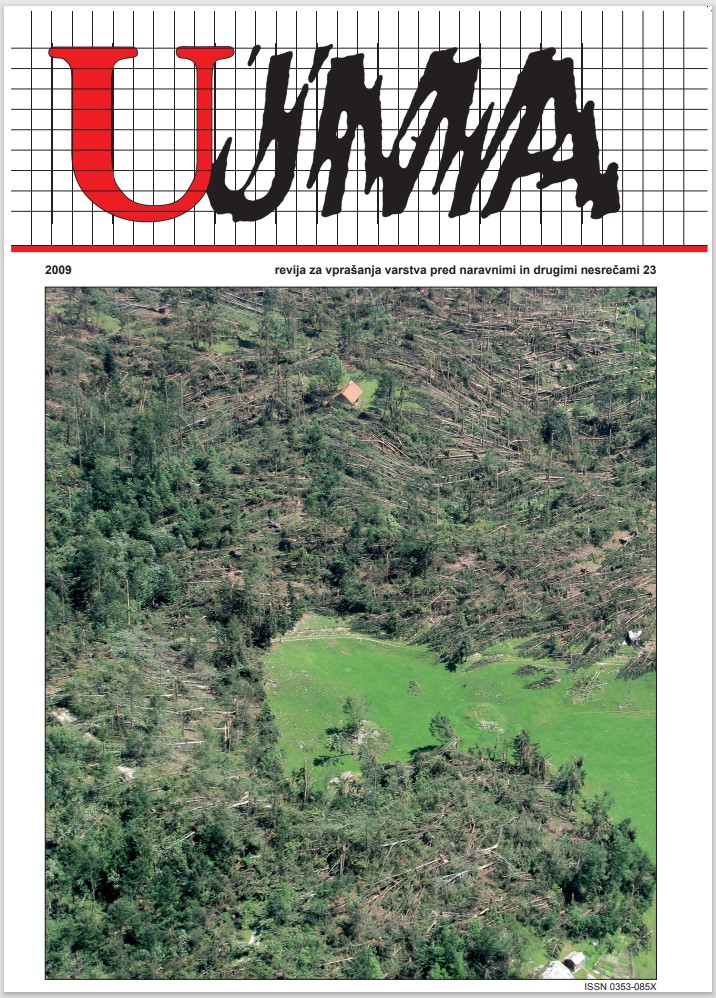PSYCHOSOCIAL SUPPORT AFTER DISASTERS
Abstract
The purpose of this article is to present guidelines on psychosocial support after major disasters as defined by international projects based on research work. Inside Europe politicians and experts are becoming increasingly conscious of the importance of psychosocial care after natural disasters and therefore more attention and funds are being dedicated to this issue. This can be seen with the increased number of international projects and networks developing guidelines for psychosocial support to individuals, families and the community, and guidelines for formal action within individual countries and in the broader context within the European Union and around the world. The dynamics of psychosocial help for a population is divided into acute, permanent and long-term phases and is implemented at four levels: basic care and safety; assistance to the community and families; focused – non-specialized assistance; and specialized assistance.
References
Arambašić, L. (urednica), 2000. Psihološke krizne intervencije: psihološka prva pomoć nakon kriznih događaja, Društvo za psihološku pomoć, Zagreb.
Bisson, J. in Andrew, M., 2007. Psychological treatment of post-traumatic stress disorder (PTSD). Cochrane Database of Systematic Reviews 2007, Issue 3. Art.
Gerry Larson and Lars Österdahl, 1996. Crisis Support, Swedish Rescue Service Agency, Karlstad, Sweden.
EFPA, Standing committee on disaster and crisis, 2007. Report to the general assembly 2007, European Federation of Professional Psychologists Associations, Praga.
European Network for Psychosocial Support - International Federation Reference Centre for Psychosocial Support, 2009. Psychosocial interventions A handbook, International Federation Reference Centre for Psychosocial Support, Copenhagen
European Network for Traumatic Stress (TENTS), 2009. TENTS Guidelines, Academic Medical Center, University of Amsterdam, Amsterdam.
EUTOPA, 2008. Multidisciplinary guideline Early psychosocial interventions after disasters, terrorism and other shocking events, Trimbos Institute on behalf of the National Steering Committee on Multidisciplinary Guideline Development in Mental Health Care, Amsterdam.
Inter-Agency Standing Committee (IASC), 2007. IASC Guidelines on Mental Health and Psychosocial Support in Emergency Settings, IASC, Geneva.
Mikuš Kos, A. in Slodnjak, V., 2000. Nesreče, travmatski dogodki in šola, DZS, Ljubljana.
National Institute for Clinical Excellence, 2005. Posttraumatic stress disorder (PTSD) The management of PTSD in adults and children in primary and secondary care. National Institute for Health and Clinical Excellence, London.
Joint Medical Committee NATO, 2008. Psycho-social care for people affected by disaster and major incidents, NATO.
Rakovec Felser, Z., 2002. Zdravstvena psihologija. Visoka zdravstvena šola, Maribor.
Seynaeve, G. J. R., 2001. Psycho-Social Support in situations of mass emergency, European Policy Paper concerning different aspects of psycho-social support for people involved in major accidents and disasters. Ministry of Public Health, Brussels, Belgium.
Svetina, M., 2007. Zaključno poročilo o rezultatih opravljenega raziskovalnega dela na projektu v okviru ciljnega raziskovalnega programa (CRP) Znanje za varnost in mir 2006-2010, Filozofska fakulteta Univerze v Ljubljani, Ljubljana.
Tekavčič Grad, O., 2003. Pogovori z ljudmi v duševnih stiskah, Psihiatrična klinika Ljubljana.
Downloads
Published
Issue
Section
License

This work is licensed under a Creative Commons Attribution-NonCommercial-NoDerivatives 4.0 International License.
The articles are made available to the public under Creative Commons Attribution-NonCommercial-NoDerivatives 4.0 International (CC BY-NC-ND 4.0).


